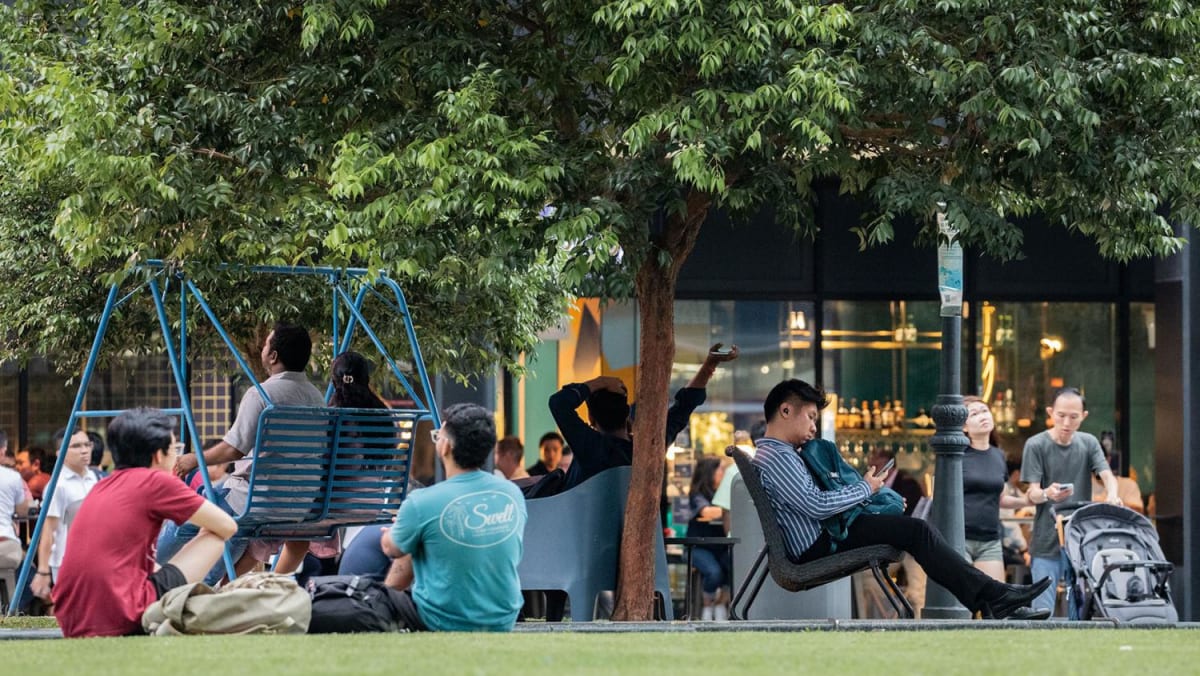Agreeing, Mr Jivan Tulsani, the head of marketing at blockchain firm TZ APAC, said that a growing demand for work-life balance does not reflect a lack of hunger from employees.
“It’s more of a shift in how ambitious professionals define success. It’s important to understand the concept of purpose, which is an aggregate of components such as talent, passion, skills, occupation, charity and service, he said.
“Professionals are able to satisfy some of these components in their jobs, but are also willing to make time for other priorities outside of work to fulfil their purposes.”
Mr Tulsani has observed that newer generations of workers are “very intentional about their passions”.
Other employers recognise the need to afford their employees greater work-life harmony, adding that they also have such employees who are still high achievers.
Mr Winthrop Wong, co-founder and pharmacist at e-pharmacy Glovida-Rx, said this is the case of some of its medical sales staff.
“We set them qualitative and quantitative goals on a yearly and monthly basis and if they are able to achieve these targets, we basically allow them to schedule their days in what is most productive to them.”
Experts interviewed by TODAY also pointed out that offering greater work-life balance and flexible work arrangements could even attract additional groups of workers — who are otherwise unable to contribute to the workforce if they had to adhere strictly to traditional work settings and hours — into the market.
Dr Ang from NTU said: “We tend to focus on the people who are currently working, and act as if they are trying to skive off by asking for more work-life balance.
“What we probably miss, are the people for whom a better work-life balance will allow (them) to work, for those whom it will allow to work longer or more sustainably (such as older persons, or those with health conditions), and so on.
“Much depends on whether employers are creative enough to tap such people by adapting their own processes or (possibly outmoded) ways of thinking.”
STRIKING A BALANCE
Amid a push for better work-life balance and flexible work arrangements even as Singapore strives to maintain its competitive edge, both employers and employees will have their work cut out for them in navigating this new landscape.
For a prospective employee, expressing a desire for greater work-life balance by way of flexible work arrangements — especially at the job interview stage — may work against the candidate, if the employer does not have such work arrangements in place, said Mr Suhaimi of SSA Group.
At the same time, employers who do not offer such flexible work arrangements may also find themselves at a disadvantage in attracting and retaining talent, especially as workers’ expectations for work-life balance continue to evolve, he said.
This is also a point that Manpower Minister Tan See Leng has made in explaining the rationale of flexible work arrangements.
With corporate information on pay, benefits, and culture becoming more transparent and widely available across prospective employers and employees, Mr Qiu from Unispace Singapore said that rival firms will need to offer benefits of a similar level, to attract and retain talent.
Over time, this would leave the organisations’ approach towards work-life balance and flexible work to be the main differentiator.
While employers interviewed by TODAY acknowledged the benefits greater work-life balance had on employee engagement, talent attraction and retention, they also raised concerns that may arise from offering employees the option of flexible work arrangements.
One challenge flagged by several employers includes the difficulty of monitoring employees’ productivity and performance when they work remotely or are operating on flexible schedules.
Other factors of concern include potential impacts on business operations and stakeholder relationships, ensuring fair team workload distribution, and any associated costs, said Ms Khew Shu Ping, deputy managing director of public relations agency Tate Anzur.
Asked what an optimal balance to strike between work-life balance and an economy’s performance could look like in Singapore’s context, Dr Ang from NTU said this balance would differ for each person at each of life.
“This means we will need to create room for people to strike these different balances without feeling like they cannot survive.”
To do this necessitates a mindset shift from being a “market society” — driven by economic logic on who is worthy of respect and what is worth striving for — to that of a “market economy”, where the economy is simply a tool for exchange and society decides what it values and how to thus make the market work for it, said Dr Ang.
Ultimately, the transition towards fully embracing greater work-life balance — premised on a mindset of results-oriented work — will require cultural and mindset shifts, which would take time, said experts.




